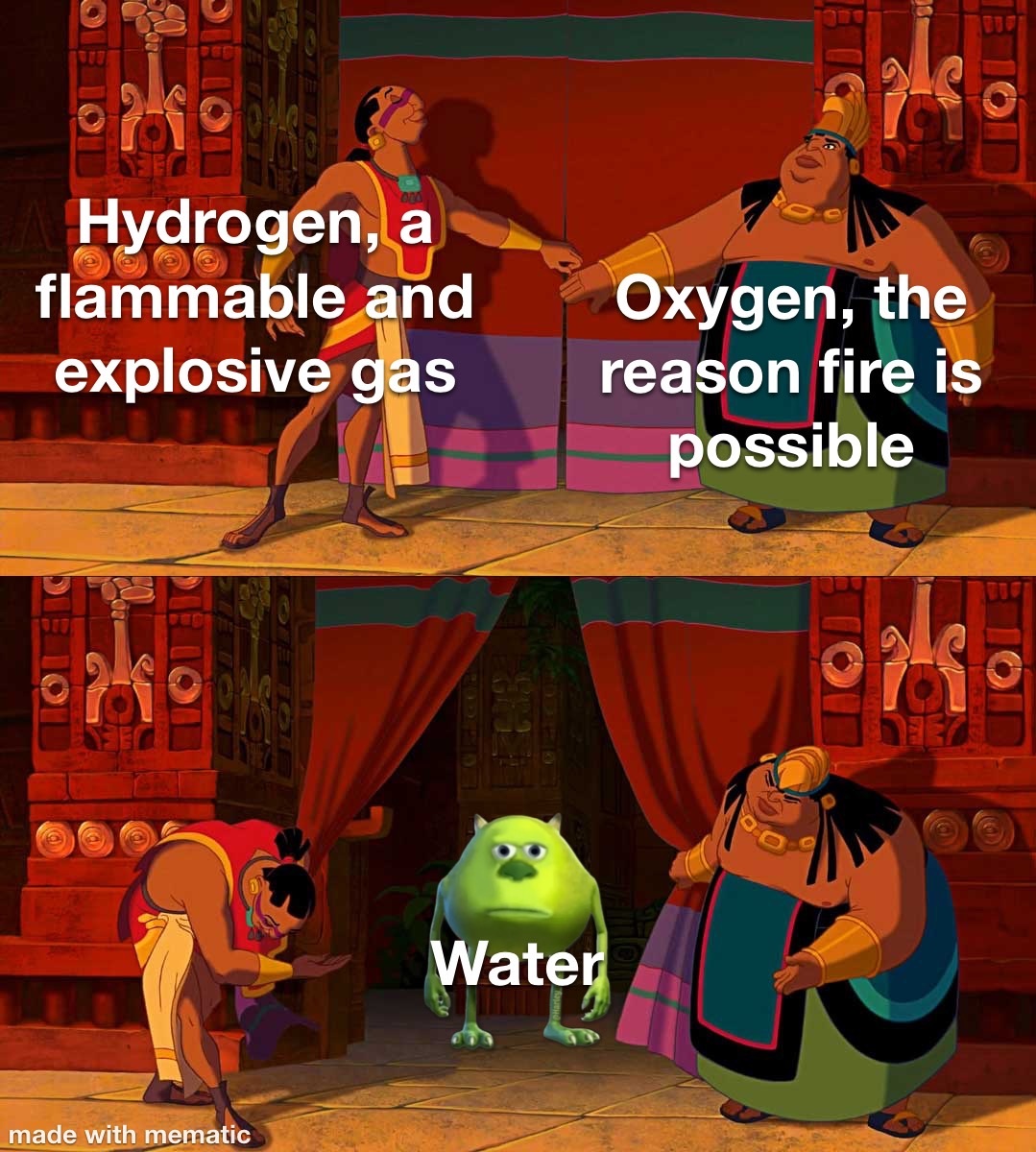this post was submitted on 29 Nov 2023
548 points (96.6% liked)
Memes
8422 readers
1277 users here now
Post memes here.
A meme is an idea, behavior, or style that spreads by means of imitation from person to person within a culture and often carries symbolic meaning representing a particular phenomenon or theme.
An Internet meme or meme, is a cultural item that is spread via the Internet, often through social media platforms. The name is by the concept of memes proposed by Richard Dawkins in 1972. Internet memes can take various forms, such as images, videos, GIFs, and various other viral sensations.
- Wait at least 2 months before reposting
- No explicitly political content (about political figures, political events, elections and so on), [email protected] can be better place for that
- Use NSFW marking accordingly
Laittakaa meemejä tänne.
- Odota ainakin 2 kuukautta ennen meemin postaamista uudelleen
- Ei selkeän poliittista sisältöä (poliitikoista, poliittisista tapahtumista, vaaleista jne) parempi paikka esim. [email protected]
- Merkitse K18-sisältö tarpeen mukaan
founded 2 years ago
MODERATORS
you are viewing a single comment's thread
view the rest of the comments
view the rest of the comments


There are other chemical reactions that produce heat, but fire is specifically a rapid oxidation. There are other oxidizers though that can result in an oxidation type reaction though, a few are even better than oxygen at it even, like fluorine (which is why pure fluorine is such dangerous stuff)
Chlorine Trifluoride is a better oxidizer than Oxygen itself. Hell, the germans in WW2 tried making self igniting flamethrowers with the stuff. But stopped because it was too nasty to work with.
At that point, they might as well just spray it directly on people. Screw using a fuel to ignite when the trifluoride is enough to set fire to literally anything. Even wet sand can be burnt by it.
Which reminds me of this quote "It is, of course, extremely toxic, but that’s the least of the problem. It is hypergolic with every known fuel, and so rapidly hypergolic that no ignition delay has ever been measured. It is also hypergolic with such things as cloth, wood, and test engineers, not to mention asbestos, sand, and water-with which it reacts explosively. It can be kept in some of the ordinary structural metals-steel, copper, aluminium, etc.-because of the formation of a thin film of insoluble metal fluoride which protects the bulk of the metal, just as the invisible coat of oxide on aluminium keeps it from burning up in the atmosphere. If, however, this coat is melted or scrubbed off, and has no chance to reform, the operator is confronted with the problem of coping with a metal-fluorine fire. For dealing with this situation, I have always recommended a good pair of running shoes. "
Yes, from the book Ignition! by John Clark. Also quoted by Derek Lowe in an entry of his "Things I Won't Work With" articles.
And why it makes great rocket fuel...
...if you ignore all the other side effects